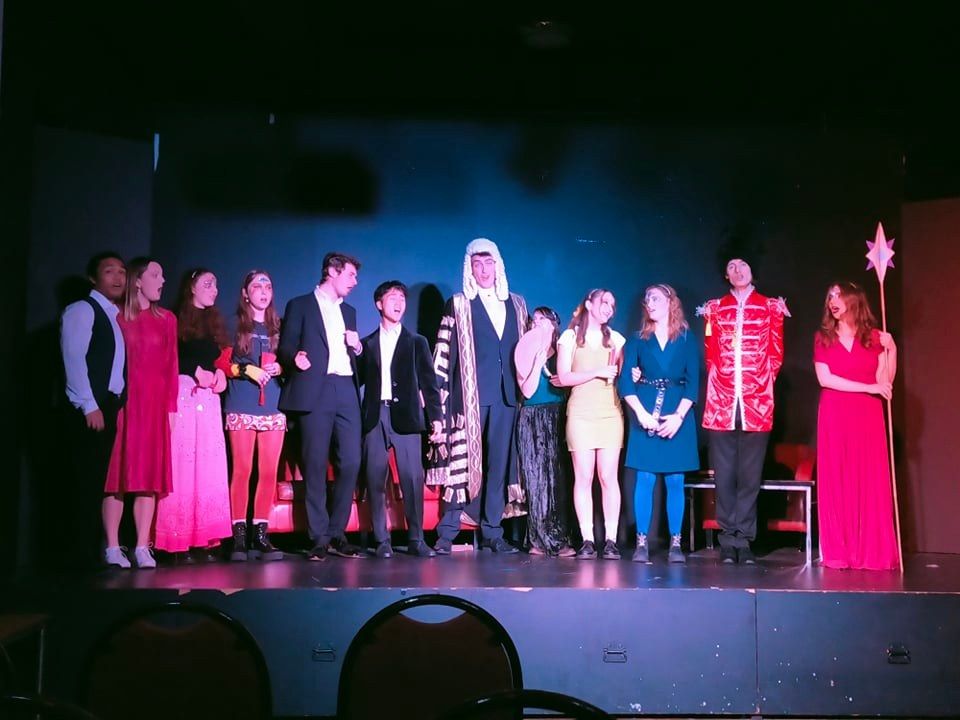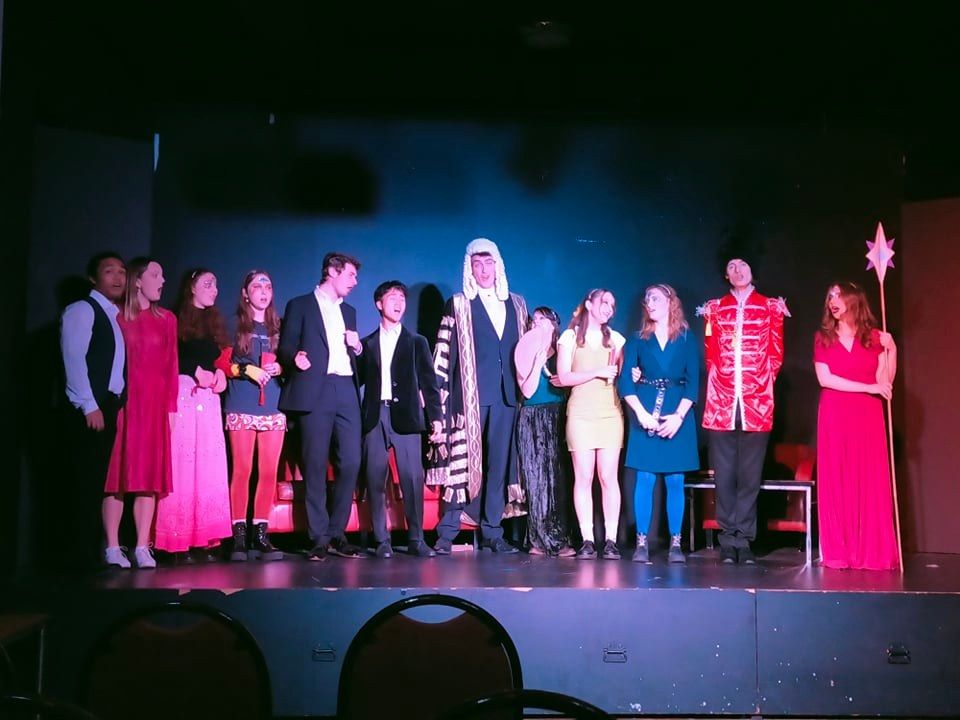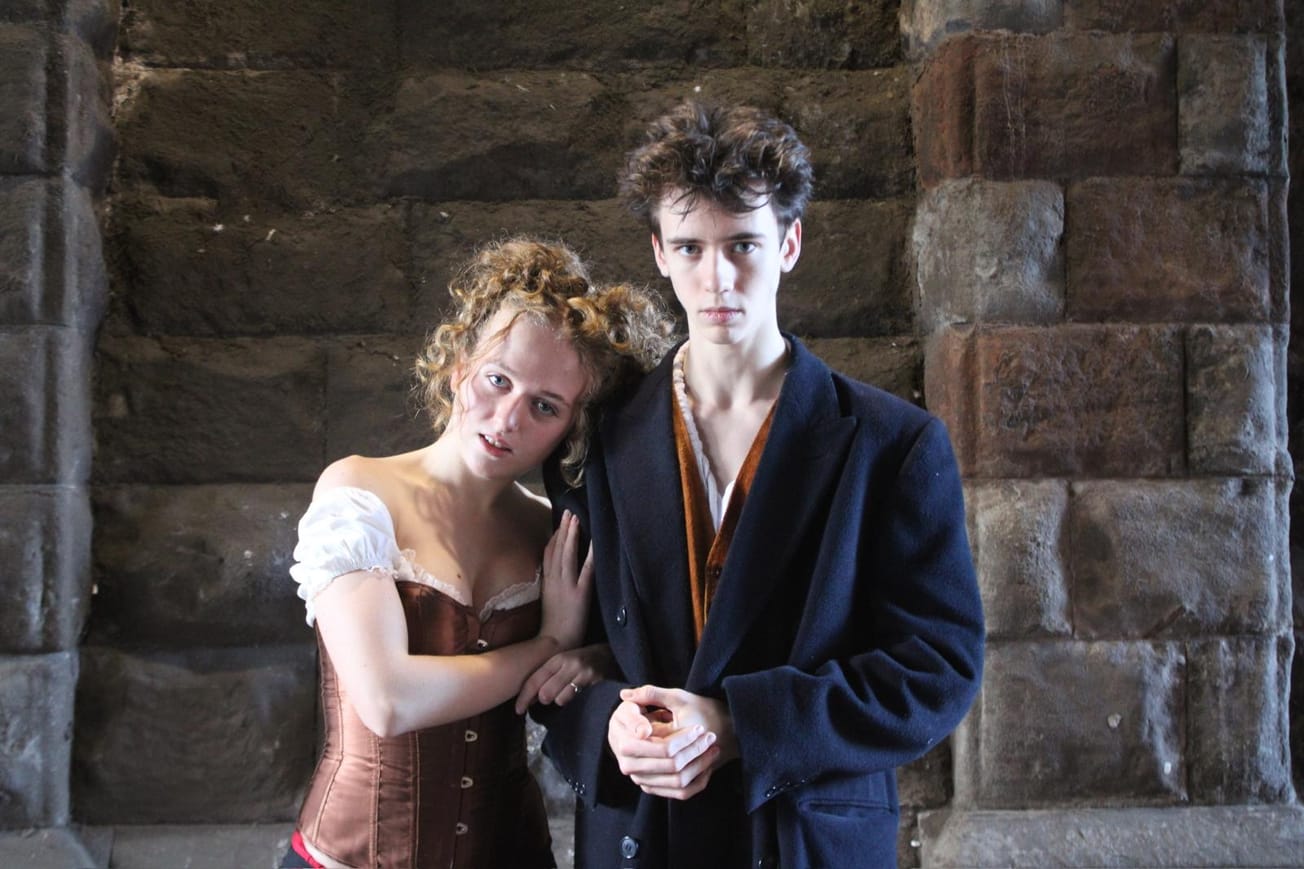By Milan Perera, Second Year English
The storyline could not get any more fanciful: a feud between a group of headstrong fairies and the House of Lords, in a deliciously ludicrous Gilbert and Sullivan fashion.
They were the ultimate creative duo in the world of operetta (light opera). What was Lennon and McCartney to popular music was Gilbert and Sullivan to operetta. Their quarter of a century artistic collaboration produced some 14 operas, with foot-tapping numbers infused with memorable lyrics.
This highly polished cast renders Gilbert and Sullivan’s dry and paradoxical satire to a tee. For example, the expression of anger on the faces of the Lords when the fairies threaten to cast a spell on them was absolutely priceless. Charlotte Du-Cann’s Phyllis brought the house down when she assured her half-fairy lover Strephon (Sam Chimbwandira ) that ‘whenever I see you kissing a young attractive female, I shall know it is an elderly relative.’ Alas, how could she have known that Strephon’s mother is an ageless, immortal fairy who does not look no more than a woman of 20-year-old. Through a combination of impeccable timing and complete deadpan, the humour was beautifully captured.
Out of the stellar cast of the production, two stand out in every scene they appear. The cold winter air in the Hill House Theatre seemed to crackle with electricity when the Lord Chancellor (James Ward) and Fairy Queen (Helen Taylor) square off. James Ward portrays an imperious and haughty Lord Chancellor while Helen Taylor shines as the regal, stern but kind-hearted Fairy Queen. James Ward has to be especially commended for his booming, velvety baritone voice, which seemed to fill the theatre as he burst into a recitative or an aria.
The cast rendered their voices to the songs, conveying the apt emotions meticulously. Iolanthe’s (Naomi Killick) tearful lament to the Lord Chancellor on behalf of her son Strephon was tender and poignant. Aaron Prewer-Jenkinson’s Private Willis and his dry observation that ‘every boy and every girl born into the world alive is either a little Liberal or else a little Conservative’ reduced the audience to a fit a laughter.
For this production of Iolanthe, the creative cohort opted for a piano accompaniment as opposed to a full scale orchestra for logistical purposes. Fergus McGregor stepped up to this Herculean task with a nonchalant temperament and backed the vocalists and choir with empathy and finesse.

The set was minimalist in design with only three pieces of furniture. This apparent drawback was amply compensated with sumptuous costumes and emphatic makeup. It goes without saying that theatrical makeup is inseparable from the act of performance itself. Mairead Heneghan brought an added layer of authenticity and vitality to the characters with her dynamic palette.
After the performance, Epigram had the pleasure of meeting up with the director and producer Io Limmer and Aaron Prewer-Jenkinson, respectively. When asked about the choice of the opus for the production, Limmer commented that:
‘the team made a conscious decision to scale down the autumn production as it is a huge undertaking for a group of full-time students who are tied up with a myriad of commitments.’
Limmer has been extremely enterprising in sourcing the costumes, getting in touch with the Bristol Gilbert and Sullivan Society. Matilda Hersey conceptualised the costumes with taste and flair which contributed to the slick finish of the production.
‘Pale wife, factory slug, limp man and a black hole’ @ Alma Tavern Theatre ★★★★★
Review: ‘Music Theatre Bristol – Showcase 2021’ @ The Winston Theatre ★★★★
The music director Aaron Prewer-Jenkinson expressed their heartfelt gratitude towards the entire cast who had been rehearsing for two months indefatigably, despite their academic and personal commitments.
Buoyant after the sweeping success of their autumn production, Bristol University Operatic Society has already set their sights on their spring production: Die Fledermaus by Johann Strauss II.
Featured Image: Epigram
Will you be getting involved in the society's next performance?








